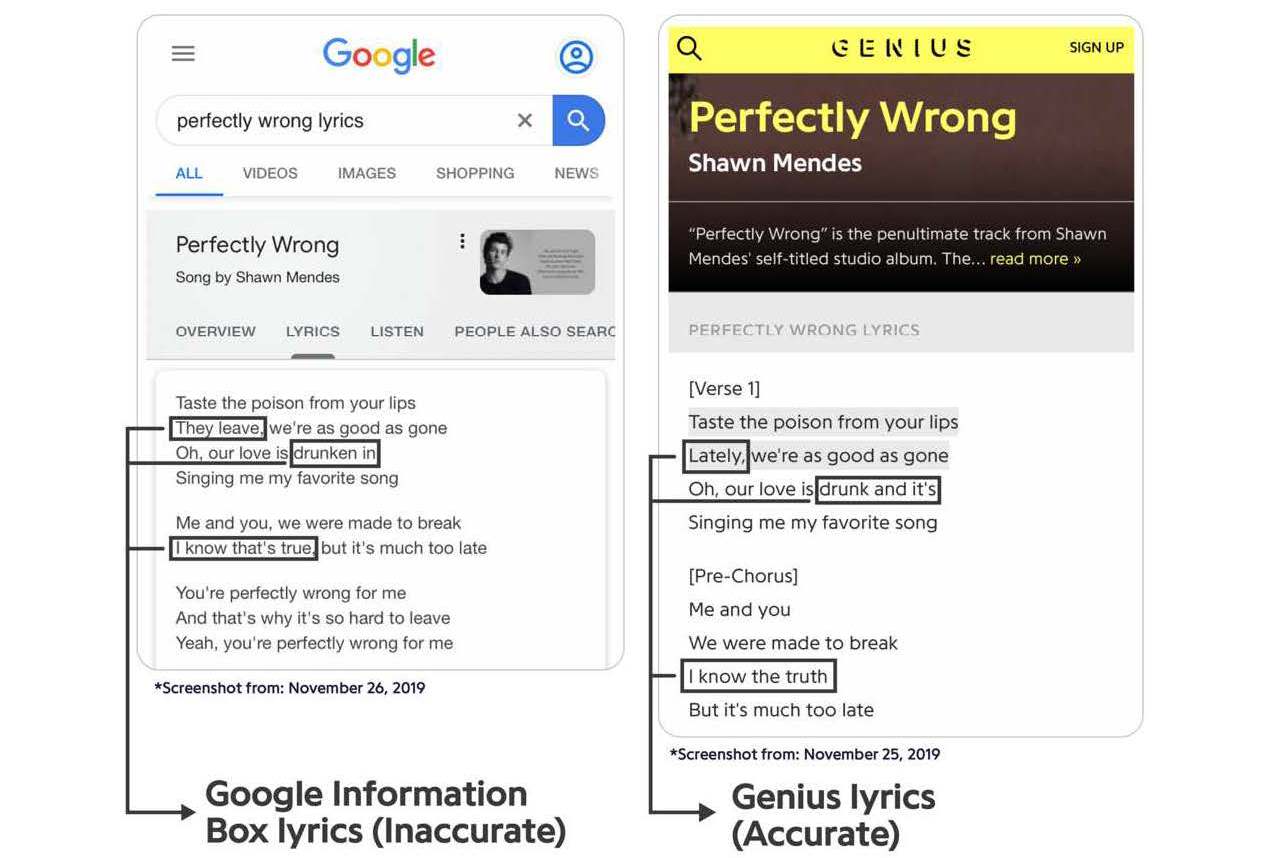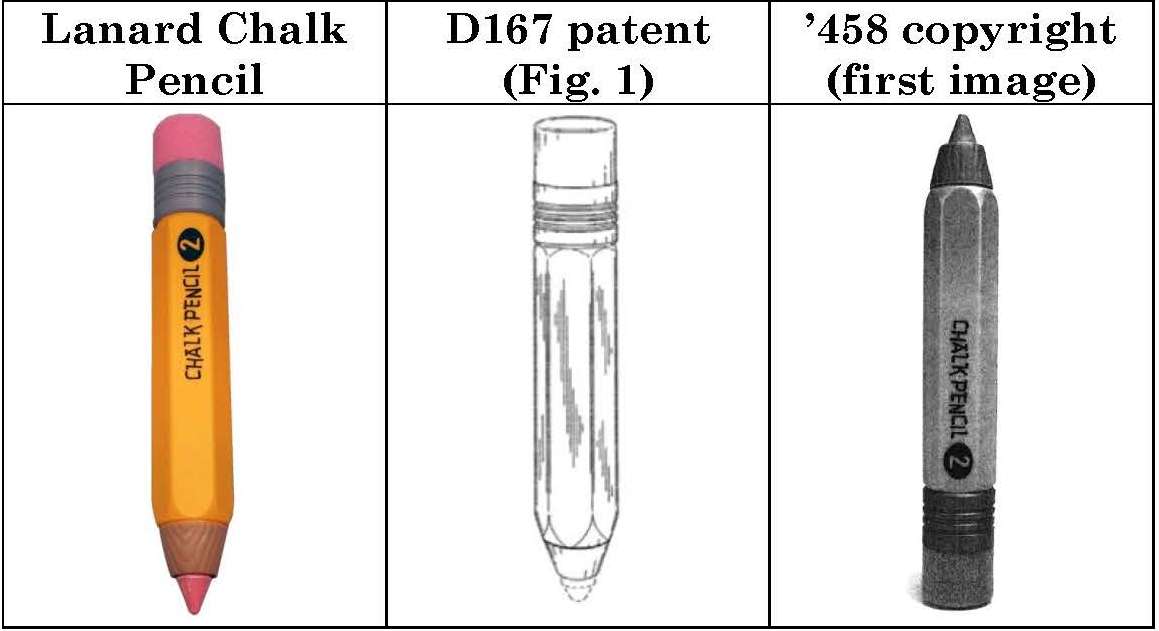 Genius Media Group (Plaintiff) is a “digital media company,” one of whose “primary services is the development and maintenance of annotated music lyrics.” LyricFind is a Canadian company that maintains a database of music lyrics. Both Plaintiff and LyricFind “license lyrics for display and distribution from music publishers.” Google “owns and operates the internet’s dominant search platform.” Pursuant to an agreement “LyricFind provides lyrics to Google for use in Google’s search results.”
Genius Media Group (Plaintiff) is a “digital media company,” one of whose “primary services is the development and maintenance of annotated music lyrics.” LyricFind is a Canadian company that maintains a database of music lyrics. Both Plaintiff and LyricFind “license lyrics for display and distribution from music publishers.” Google “owns and operates the internet’s dominant search platform.” Pursuant to an agreement “LyricFind provides lyrics to Google for use in Google’s search results.”
Category: Competition
Online intermediary services and online search engines play a crucial role in enabling and promoting digital trade. In order to strengthen the trust of business users and consumers and encourage them to take part in the vast digital ecosystems created by online platforms, it is necessary to set minimum standards for their services.
Comments closed
 Lanard makes and sells the “Lanard Chalk Pencil,” which is a toy chalk holder designed to look like a pencil. Lanard owns Design Patent, which contains five figures showing a pencil-shaped chalk holder from different angles. Lanard also owns copyright Reg. for a work entitled “Pencil/Chalk Holder.”
Lanard makes and sells the “Lanard Chalk Pencil,” which is a toy chalk holder designed to look like a pencil. Lanard owns Design Patent, which contains five figures showing a pencil-shaped chalk holder from different angles. Lanard also owns copyright Reg. for a work entitled “Pencil/Chalk Holder.”
Comments closed
In 1995, Steven Silvers created the Googles brand. Two years later, he registered the Googles trademark and the internet domain name www.googles.com. The website launched in 1998 as a children’s education and entertainment website. That year, the search engine Google adopted the Google name. Subsequently, in 2005, Silvers sued Google for trademark infringement.
Comments closed
IIPA, in its written submission in response to USTR’s request for comments, gave main principles for collective management of rights. Actually it seems like recommendation for certain countries, including Russia, how to organize governing of CMO on national level. It would be better not to change anything in this peace of submission. By reading always keep in mind, that collective management in Russia organized rather than submission recommends.
Comments closed
The Russian antitrust service has proposed to apply antitrust regulations in relation to intellectual property deals in Russia, in other words it was proposed to diminish monopoly provided by intellectual property.
Comments closedSuch companies like Google, Apple, Microsoft, Amazon and others with diversified business activities almost around the world are also presented in Russian internal market. Except such companies there are also Russian digital companies in Russia, but mostly with foreign owner or stakeholder, i.e. such companies are also in some sense a foreign companies. The most problem in competition with foreign market players in Russian internal market is rough and sometimes unreasonable regulation affecting Russian market players.
Comments closed
Almost all software developers know what Githubis, including those who resides and works in Russia. Github belongs to Microsoft – the huge international company, having its presence even in Russia. The Russian ministry of economic development (MinEc) has proposed to create the Russian analogue of Github, in a case if Github would be blocked in Russia. Certainly such idea needs significant funding to be realized. Certainly MinEc has proposed to allocate in state budget the funding for realizing of this idea – the Russian Github.
Comments closed
The new draft law providing limits for advertising is introduced for consideration in Russian state duma. The law aims to reduce the duration of advertising showing before film running. The reason is the advertising can lasts from 15 to 30 minutes. Actually the viewers use this time in order to buy something to make movie viewing more pleasant. The legislators believe the advertising is shown contrary to the will of viewers in violation of Russian law. But the draft law does not provide liability for its violation.
Comments closed
Russian ministry of culture has finally proposed draft law aiming to set limits for foreign movies, in particular for hollywood movies. The main purpose of the draft law is to provide more opportunities for those movies which can’t attract viewers’ attention. In other words the law proposes to limit the quantity of film sessions in single cinema. For these purposes the law even provides definition for cinema.
Comments closed